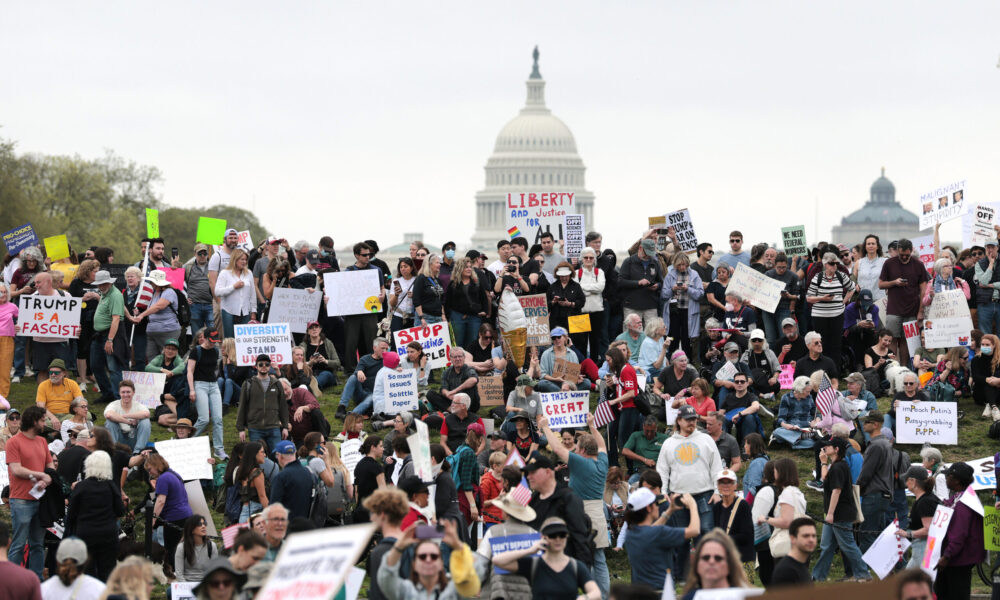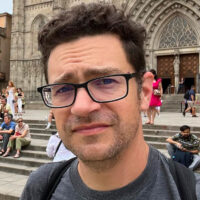By April 30, President Donald Trump’s second term will have gone on for 100 days—but it’s understandable if it already feels like longer. The new Trump administration has been even more reckless and destructive than the first time around. The Union of Concerned Scientists is working hard to monitor, contain, and reverse this administration’s abuses of science. Dr. Pallavi Phartiyal serves as UCS vice president for programs, policy, and advocacy, and she’s helping to guide the organization’s response to this critical moment.
AAS: It’s overwhelming to see everything that has happened in just these first few months of the Trump administration. What’s been most surprising and concerning to you?
PALLAVI PHARTIYAL: What’s really struck me are the scale, the speed, and the recklessness of these changes.
Elon Musk and his so-called “Department of Government Efficiency” (DOGE) have run roughshod over federal science agencies, arbitrarily firing staff, and interfering with their work. Trump has issued a rapid stream of executive orders purporting to limit, among other things, any work related to diversity, equity, and inclusion, as well as attacking science, environmental justice, and voting rights. President Trump’s appointees at multiple agencies have announced plans to roll back many of the most important climate and public health rules. And the administration has made clear their intention to withhold federal funding, much of which also goes to public and private universities and colleges across the country. Many of their actions are illegal and unconstitutional, in defiance of Congressionally-passed appropriations. It’s a lot to take in, but we can’t let ourselves get overwhelmed or defeated by it—and we’ve been preparing. At UCS, we’re focused on where we can have the most positive impact, drawing on our scientific expertise and the relationships we’ve built.
AAS: What are some of the most significant attacks on science we’ve seen so far?
PALLAVI PHARTIYAL: Led by Elon Musk, the administration is dramatically reducing scientific capacity, laying off thousands of employees including federal scientists and technical experts, and disbanding or ignoring advisory committees, at agencies and sub-agencies like the Department of Health and Human Services (HHS), the National Oceanic and Atmospheric Administration (NOAA) and the US Census Bureau.
They’ve also made a mockery of the idea of transparency by removing or altering critical information and limiting access to scientific data, datasets and tools from government websites. This is research and data that taxpayers have paid for and have a right to.
Trump’s political appointees—many with a record of science denial or close ties to the industries they’re supposed to be regulating—are threatening to stop enforcement and roll back rules on chemical safety, clean transportation, emissions standards, pollution control, and other important issues. Those rollbacks will empower polluters and politically connected corporations, at a real cost to our health and safety.
Through executive orders and actions by DOGE and other political appointees, they’re halting research and grants to universities, essentially putting the future of US scientific leadership and technological progress in jeopardy.
They’re undermining agencies like the Federal Emergency Management Agency (FEMA) and NOAA that keep us safe and informed. They’re reducing the budgets and staffing of science-based agencies like the National Institutes of Health (NIH), National Science Foundation (NSF), Environmental Protection Agency (EPA), and Department of Energy (DOE), which play a vital role in both federal rulemaking and scientific research.
And we can’t ignore this administration’s shocking attacks on human rights, civil liberties, the rule of law, and the right to vote, without which we can’t build a healthier society that works for everyone.
AAS: What are some of the ways UCS is responding?
PALLAVI PHARTIYAL: We’ve launched a “Save Science, Save Lives” campaign to protect federal science and scientists. We’re also trying to preserve documents that the administration might try to bury, and we’re offering resources and solidarity spaces to federal employees. We’re mobilizing scientists and scientific societies to put pressure on congressional leaders to stop the evisceration of the federal scientific infrastructure. We’re actively publishing and bringing media attention to harms this administration is causing to the independent science that supports public health and environmental protections.
Critically, experts across our programs are tracking and exposing how the administration is attacking, suppressing, and dismantling science. It mattered in 2017, and it matters now to make sure they’re not carrying out their attacks behind the scenes.
It’s also important to shore up science and science-based policies outside the federal government. We’ll continue to work with states to support clean energy and transportation policies, and we’ll continue to hold the fossil fuel industry accountable for the damage they’ve done to our climate.
AAS: UCS has joined a major lawsuit against the administration. What’s the case we’re making, and what do the next steps look like?
PALLAVI PHARTIYAL: We’re suing Elon Musk, DOGE, and federal agencies, on behalf of our members whose jobs and grants have been impacted by radical funding cuts and mass firings that we allege are unconstitutional. We have asked the court for an expedited hearing this spring, and we are seeking a preliminary ruling that these actions were illegal, that would restore funding and personnel to federal agencies.
AAS: What can scientists and science supporters do to help?
PALLAVI PHARTIYAL: We’re rallying the scientific community to unite in opposition to these attacks on science, including holding our elected representatives accountable at town halls and call-ins, and drawing attention to the massive negative impacts on science, public health, and the environment. In March, we delivered a letter to Congress signed by 48 scientific organizations and societies, representing nearly 100,000 scientists, demanding that our lawmakers act to protect federal science and agencies. We’re developing a hard-hitting digital campaign to sound the alarm on the first 100 days of harm done by this administration. We ask all scientists and science advocates to join us for a coordinated digital action on April 30. Join us and stay turned for more.

